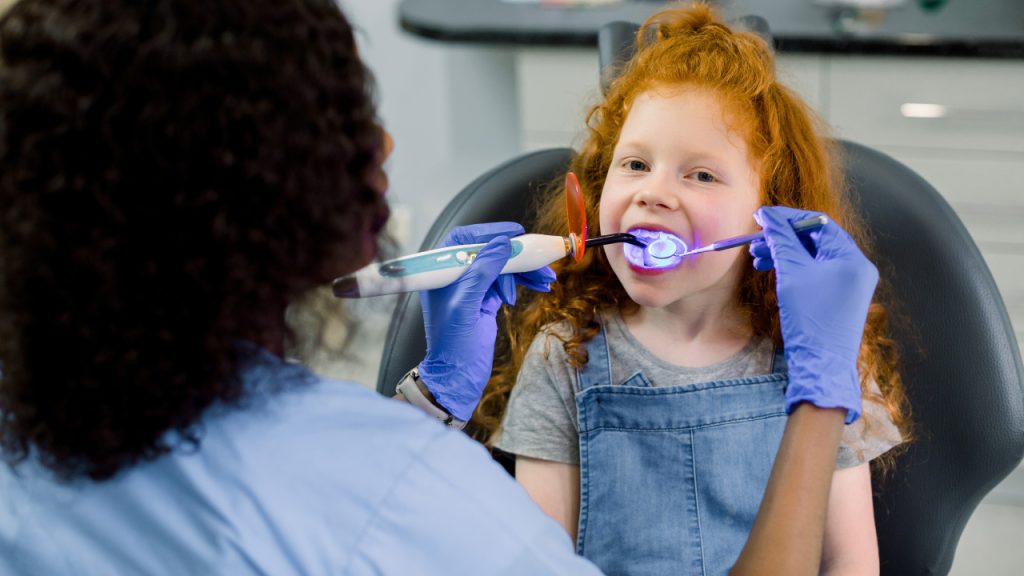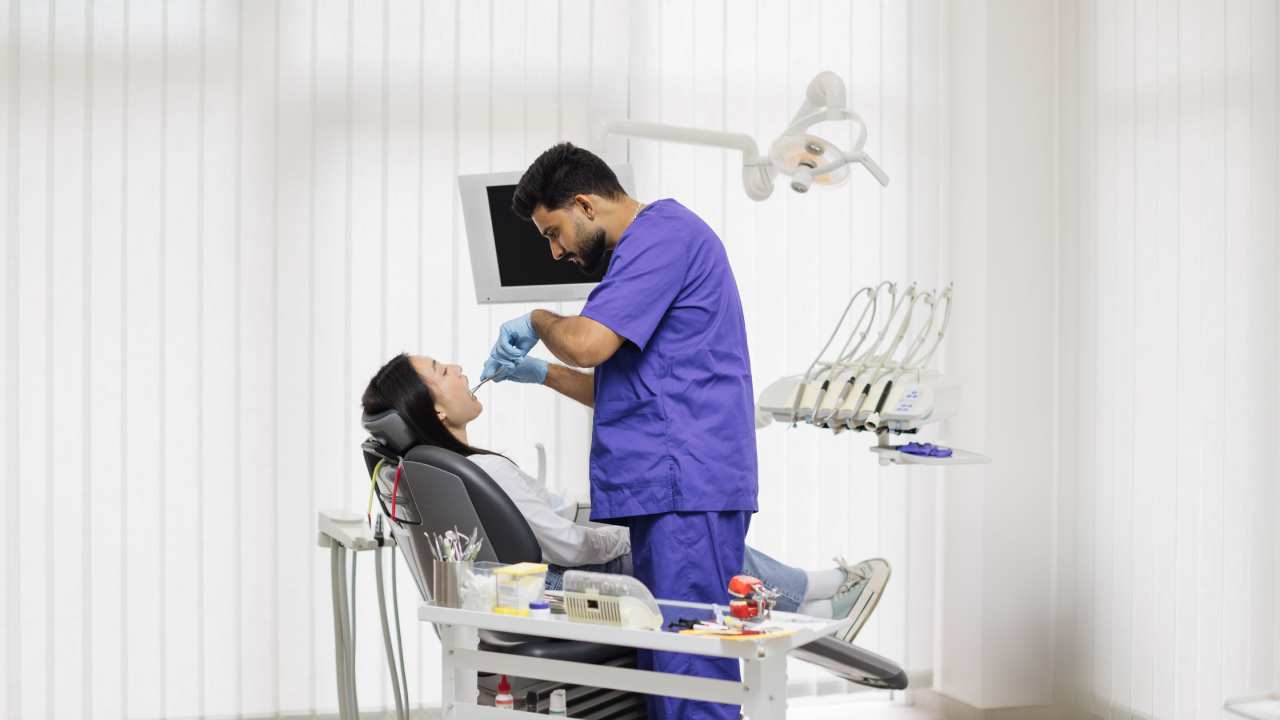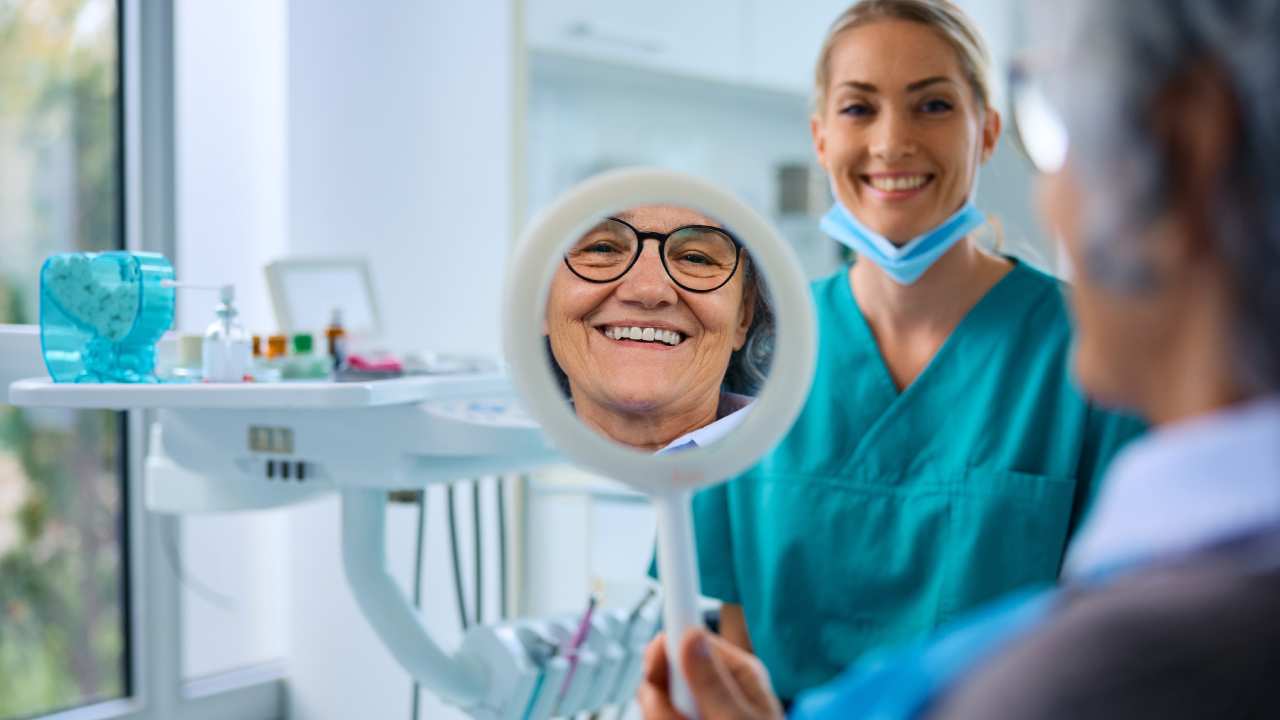Why pediatric dental care matters
When it comes to safeguarding your child’s overall well-being, pediatric dental care is an essential cornerstone that supports a healthy smile and sets the stage for a lifetime of good oral habits. You might be surprised to learn that tooth decay is the most common chronic disease among children in the United States, according to the Centers for Disease Control and Prevention (CDC). In fact, more than half of kids aged 6 to 8 years will have at least one cavity in their primary (baby) teeth, and more than half of adolescents aged 12 to 19 will have at least one cavity in their permanent teeth. These statistics underscore the significance of scheduling regular dental checkups and ensuring professional guidance right from a young age.
Children’s dental health has a profound impact on their comfort, confidence, and learning abilities, affecting everything from how easily they speak and eat to how they engage with the world around them. By seeking the specialized services of a pediatric-focused dental team, you can help ensure that early issues like cavities, misalignments, or gum inflammation receive prompt attention. Moreover, child-friendly dental environments play a big role in creating positive perceptions of the dentist’s office. From the colors on the walls to the fun “sugar bug” analogies, thoughtful details can help kids feel safe and encouraged as they learn about caring for their teeth.
Below, you’ll find insights into why early visits matter, how you can prepare your child for checkups, and what types of services a trusted practice like Reimels Dentistry can provide for your family. Investing in your child’s oral health while they’re young amounts to more than just preventing cavities. It’s about fostering a strong foundation of confidence and empowerment that can carry them into adolescence and adulthood with healthy, bright smiles.
Early visits lay the foundation
Experts throughout the dental community emphasize the importance of scheduling a child’s first dental visit shortly after their first tooth erupts, or by their first birthday. The American Academy of Pediatric Dentistry stresses that these early visits can be incredibly beneficial in spotting potential dental problems, reducing fear of the dentist, and promoting healthy oral habits (Children’s Dental Health Center). Even before your little one has many teeth, it’s important to gently wipe their gums after feedings to familiarize them with mouth cleaning. Good oral hygiene starts sooner than you might expect.
- Familiarity reduces fear. When a child grows accustomed to the sights, sounds, and feel of a dentist’s office early on, they’re less likely to develop anxiety later. You can further reduce fear at home by framing the dentist in a positive light—some parents call them “tooth superheroes” battling sugar bugs.
- Preventing issues, not just detecting them. Routine checkups every six months are beneficial for spotting early decay, but frequent visits can also ensure that teeth are developing properly. If an abnormal bite or misalignment is on the horizon, timely intervention may lessen the extent of future orthodontic treatments.
- Confidence-building. As your child’s comfort grows, so does their willingness to ask questions about brushing, flossing, and the kinds of foods that keep teeth strong. Such positive engagement at a young age can anchor long-term oral health habits.
By taking your little one to their first appointment on time, you’re granting them a chance to normalize the dentist’s office. This paves the way for smoother visits in the future, reduces potential problems down the line, and contributes to building a resilient oral hygiene routine.
Child-friendly environments and emotional support
Kids often feel uneasy in unfamiliar settings, so providing a supportive environment can make all the difference in their willingness to receive care. Pediatric dental offices tailor their design and approach to ensure children feel at ease: think bright colors, engaging activities in the waiting room, and smaller, kid-friendly dental tools that don’t seem nearly as intimidating as adult-sized instruments. Many practices also allow parents in the exam area, especially helpful when you want to provide emotional support to a nervous child (Hudson Valley Kids Smiles).
- Fun distractions: Cartoons, playful murals, and toys are commonly available to occupy your child’s attention and minimize discomfort. This child-centric design signals that the environment is truly meant for them.
- Patient and empathetic staff: Pediatric dentists and hygienists learn techniques that focus on gentle conversation and child-friendly language. Talking about “sugar bugs” to explain plaque can be far more memorable and less scary than using phrases like “dental caries.”
- Comfort items: Encouraging your child to bring a favorite stuffed animal or blanket can help them feel secure. According to some pediatric dental professionals, offering a small toy or reward after a successful checkup can reinforce positive experiences.
By creating a caring, approachable atmosphere, pediatric dental teams can address not just the physical aspects of your child’s oral health but also help shape their mindset about dental care. This environment instills confidence, reduces stress, and promotes a lasting positive attitude toward keeping teeth and gums in great condition.
Building strong oral habits from the start
The key advantage of consistent pediatric dental care is that it helps your child develop strong oral hygiene practices that become second nature. Regular visits don’t just spot problems, they teach children how to prevent them in the first place. Whether it’s brushing carefully twice a day, learning proper flossing techniques, or making better food choices, these habits are best learned earlier rather than later. Here are core habits that pediatric dentists encourage:
- Routine brushing and flossing: Children should be brushing at least twice daily. If their dexterity is still developing, you can supervise or help them, ensuring they reach all surfaces of their teeth. Once permanent teeth start to erupt, flossing becomes crucial to clean the tight spaces between teeth.
- Motivational language: Use fun, relatable terms to explain the benefits of brushing. For smaller kids, we often talk about battling invisible “sugar monsters” that feed on leftover food in the mouth. This approach helps kids see themselves as active participants in their own health journey.
- Balanced diet: Foods rich in vitamins, minerals, and fiber are beneficial for teeth too. Crunchy fruits like apples gently scrub the teeth as your child chews, while vegetables like carrots and celery stimulate saliva production, which helps reduce acid buildup (Puget Sound Pediatric Dentistry).
- Fluoride as a cavity shield: Fluoride strengthens enamel, which is why it’s found in many toothpastes recommended by pediatric experts and is often applied as a varnish during dental visits (CDC). If you have any concerns about fluoride, don’t hesitate to ask your dental professional for clarity.
Instilling good habits is a team effort. While pediatric dental professionals provide guidance, you reinforce those lessons at home. By partnering with experts in an ongoing way, you can help ensure that your child’s oral hygiene foundation remains strong.
The role of preventive, restorative, and cosmetic care
You might think children only need checkups for cavity prevention, but a holistic approach can be incredibly advantageous for addressing the varying needs of growing smiles. Beyond routine cleanings, you can explore special treatments and advanced services that ensure comprehensive care.
- Preventive measures: Kids often benefit from protective options like sealants and fluoride applications. Sealants are thin coatings placed on the chewing surfaces of back teeth to keep out bacteria, preventing up to 80% of cavities in these vulnerable spots (CDC). In addition, services like a professional teeth cleaning can remove stubborn plaque and keep gum tissue healthy.
- Restorative treatments: When a cavity or injury does occur, timely action is essential. Tooth extraction may sometimes be unavoidable, but many times the tooth can be saved with treatments like root canal therapy if the decay or damage is caught early. When needed, dental crown placement can preserve tooth structure and safeguard against further damage.
- Cosmetic enhancements for older kids or teens: Sometimes, cosmetic dentistry can boost a teenager’s confidence if they have chipped or discolored teeth. Realigning crooked smiles is another realm entirely: you might start with an orthodontic consultation or consider alignments through an invisalign service. While not always needed for young children, these options can help older kids develop healthy self-esteem along with healthy teeth.
Reimels Dentistry offers a robust range of both preventive and advanced treatments, ensuring you and your family can address virtually any dental concern under one roof. By choosing a practice that values gentle, thorough, and empathetic care, you’re not just resolving immediate issues but also building a foundation of trust for future visits.
Why choose Reimels Dentistry for your child
When deciding on a dental care provider for your child, you want a practiced team with the expertise, technology, and empathy to meet your family’s unique needs. At Reimels Dentistry, you’ll discover a welcoming atmosphere designed to make children feel safe and comfortable. Our streamlined approach addresses the full spectrum of pediatric care, from simple cleanings and cavity prevention to more specialized services:
- Comprehensive preventive services. We believe that stopping problems early is always preferable. We provide fluoride treatment and ongoing oral cancer screening to monitor overall oral health—yes, cancer screenings are crucial even for younger patients, no matter how rare the possibility. We also have the latest equipment, including digital xray imaging and intraoral camera examination, ensuring accurate diagnoses with minimal discomfort.
- Trusted restorative options. In the event that your child’s tooth has a cavity or damage from an injury, we offer solutions like root canal therapy, dental crown placement, or even specialized procedures such as bone grafting ridge preservation when necessary for ongoing oral development. While not every child needs advanced procedures, we keep these options in place to handle an array of scenarios.
- Modern cosmetic treatments. As your child ages, we can collaborate on strategies that align with their personal goals for their smile. Options like cosmetic smile makeover or porcelain veneer placement are available for older teens who may need a confidence boost or correction of aesthetic concerns.
Everything we do is fueled by a genuine desire to help patients thrive. From sedation options, such as nitrous oxide sedation, to a calm, child-friendly environment, we design each step of care with empathy. Our priority is to reduce stress while ensuring top-tier quality, steering your child toward an enduring sense of well-being and happiness.
Calming anxious children with empathetic care
It’s natural for children to feel apprehensive at the dentist, especially when it involves new sounds, sensations, or hands near their face. At Reimels Dentistry, we prioritize empathetic communication and gentle techniques. We also encourage you to stay with your child whenever possible, as parental presence often keeps anxiety at bay.
- Explaining each step: We guide children through “show-and-tell” routines, like demonstrating how a small mirror works before placing it in their mouth. Descriptions in friendly terms, such as talking about “tickling teeth,” can make a world of difference.
- Distraction and relaxation: Some kids find comfort in music or watching cartoons during their treatment. Others might simply hold a favorite toy. According to the Children’s Dental Health Center, breathing exercises can help children relax as well, which is why we teach a few quick techniques for them to practice before or during the visit.
- Tailored sedation options: For children with serious anxiety or those facing more involved procedures, sedation can be a supportive remedy. Whether it’s mild inhaled sedation through nitrous oxide or a deeper level of relaxation, sedation dentistry service is designed to alleviate distress while keeping your child safe and comfortable.
An essential aspect of calming anxiety is empathy. We genuinely understand that fear can be overwhelming at any age, and we take pride in providing the transparency, patience, and warmth necessary for your child to have a positive experience.
Food choices that protect growing smiles
Dental care isn’t limited to the dentist’s chair. Your grocery shopping list can be just as important as regular cleanings when it comes to protecting your child’s teeth. Various studies show that a healthy, nutrient-dense diet fosters strong enamel and reduces the risk of tooth decay (Puget Sound Pediatric Dentistry). Here’s how strategic nutrition choices help:
- Crunchy fruits and veggies: Apples, carrots, and celery are high in water content and texture, enabling them to rub away plaque while stimulating saliva flow to wash away harmful bacteria.
- Calcium-rich dairy: Milk, cheese, and yogurt provide a boost of calcium and phosphates that strengthen tooth enamel. They also neutralize acidic environments in the mouth resulting from sugary or starchy foods.
- Hydration: Water is your best friend for rinsing away food particles and maintaining a saliva-rich environment. Encourage frequent water intake, especially if your child is active in sports. This can be a potent defense against plaque buildup.
- Moderation of sugary snacks: Sweets and sticky foods like candy or dried fruit can cling to teeth, offering extended opportunities for bacteria to thrive. Minimizing consumption, or making sure to rinse thoroughly afterward, helps maintain a healthier mouth.
Preparing well-balanced meals and snacks for your children sets the tone for stronger teeth and reduced dental visits. While it may be challenging to avoid sugar altogether, mindful moderation and quick rinses after indulging can drastically lower the risk of cavities.
Creating a lifetime of good health
Children’s oral health intersects with overall well-being in many ways. Untreated decay and gum disease can make eating painful or lower a child’s confidence, potentially hindering their academic and social development. Plus, the same bacteria that affect mouth health can sometimes impact the rest of the body, highlighting why common conditions like diabetes and heart disease have been linked to chronic gum inflammation (KidsHealth).
By establishing healthy oral habits today, you support not only your child’s immediate comfort but also their future health. Frequent visits, nutritious food, proper brushing, and an encouraging home environment can help ensure a smoother trajectory. As your child transitions into the teenage years, the good practices they’ve internalized will guide them through new challenges, such as braces or wisdom teeth extractions. The bond you form with a trusted dental practice like Reimels Dentistry lays the groundwork for a confident, informed approach to health for years to come.
Five frequently asked questions
- When should my child have their first dental visit?
Pediatric dentists often recommend bringing your child in around their first birthday or as soon as their first tooth appears (Colgate). Early checkups help detect potential issues before they become problematic and teach your child that the dentist is a fun, supportive place. - How often should my child visit the dentist?
Most experts recommend checkups every six months, though some children with higher risks of dental disease may need more frequent visits (Top Dentist for Kids). Regular appointments also build your child’s familiarity and confidence, making it easier to handle more advanced care if needed. - Is fluoride treatment safe for children?
Yes. Fluoride is a key mineral that protects teeth from cavities by strengthening enamel. If used in proper amounts, fluoride treatments and fluoride toothpaste are perfectly safe, even for toddlers (CDC). Always check with your dentist if you have concerns about dosage. - What can I do to prepare my child for the dentist?
Start by framing the experience in a fun, positive manner, calling the dentist a “tooth superhero” instead of using scary words like “drill” or “shot.” You can practice role-playing scenarios at home: pretend to be the dentist, count your child’s teeth, or let them “clean” their stuffed animal’s teeth with a soft cloth. Bringing a comfort item also helps. - How does Reimels Dentistry handle anxious kids?
We focus on building trust through gentle communication and personalized approaches. Our team might show your child each instrument before using it, allow them to watch a favorite show during treatment, or even use mild sedation if necessary. Our goal is to ensure your child feels safe, informed, and involved in the process.
Encouraging consistent care and confidence
At Reimels Dentistry, we believe your child deserves a warm, upbeat environment that prioritizes both their current comfort and long-term health. Our solutions address a variety of preventive, restorative, and cosmetic needs under one roof. By forging a strong relationship with our caring team, your child remains on track toward a lasting, vibrant smile. In turn, this sense of reassurance and empowerment can have a positive ripple effect in their social life, academic performance, and overall emotional well-being.
We understand that raising a child involves juggling many responsibilities, from busy school schedules to balancing family time. As part of our approach, we strive to make each visit seamless. We keep lines of communication open, offer transparent pricing, and provide multiple ways to make the dental experience comfortable and reassuring. We also customize plans to accommodate unique factors, such as pre-existing medical conditions, special needs, or a heightened gag reflex. The more we understand your child’s individuality, the more effectively we can tailor our approach.
Conclusion
Quality pediatric dental care doesn’t just help you avoid cavities, it lays the groundwork for a lifetime of healthy smiles. Early visits cultivate acceptance and trust in the dentist’s office, while child-friendly environments ensure your little one feels supported, curious, and unafraid. Positive reinforcement and a balanced diet defend against harmful plaque, while preventive procedures like sealants and fluoride treatment can steer them clear of more extensive dental work in the future. Plus, having an empathetic and experienced team by your side can make the process much smoother.
At Reimels Dentistry, our range of services goes well beyond routine checkups, from preventive measures like professional teeth cleaning to advanced restorative options such as dental crown placement. By investing in comprehensive, empathetic care now, you’re not just helping your child maintain a bright, sparkling smile—you’re also fortifying their confidence and sense of well-being throughout pivotal stages of growth. Schedule your next appointment with us, and together, we’ll ensure your child receives the support necessary for lasting oral health.







